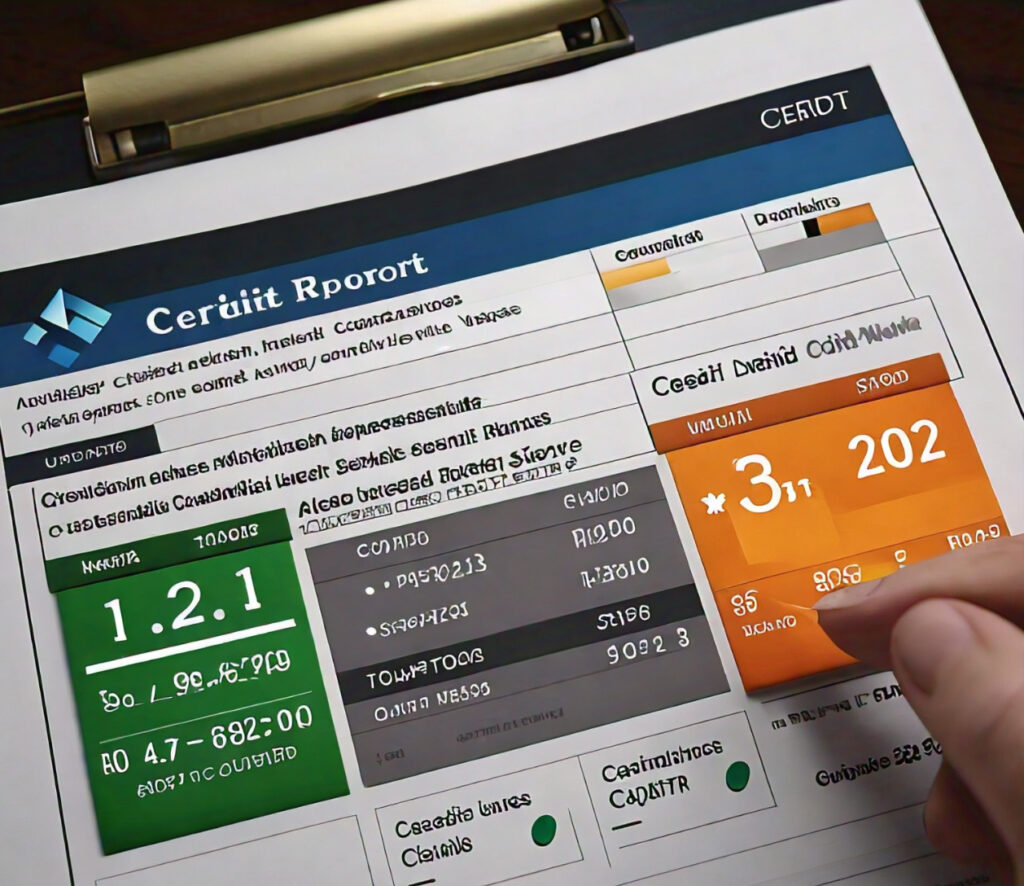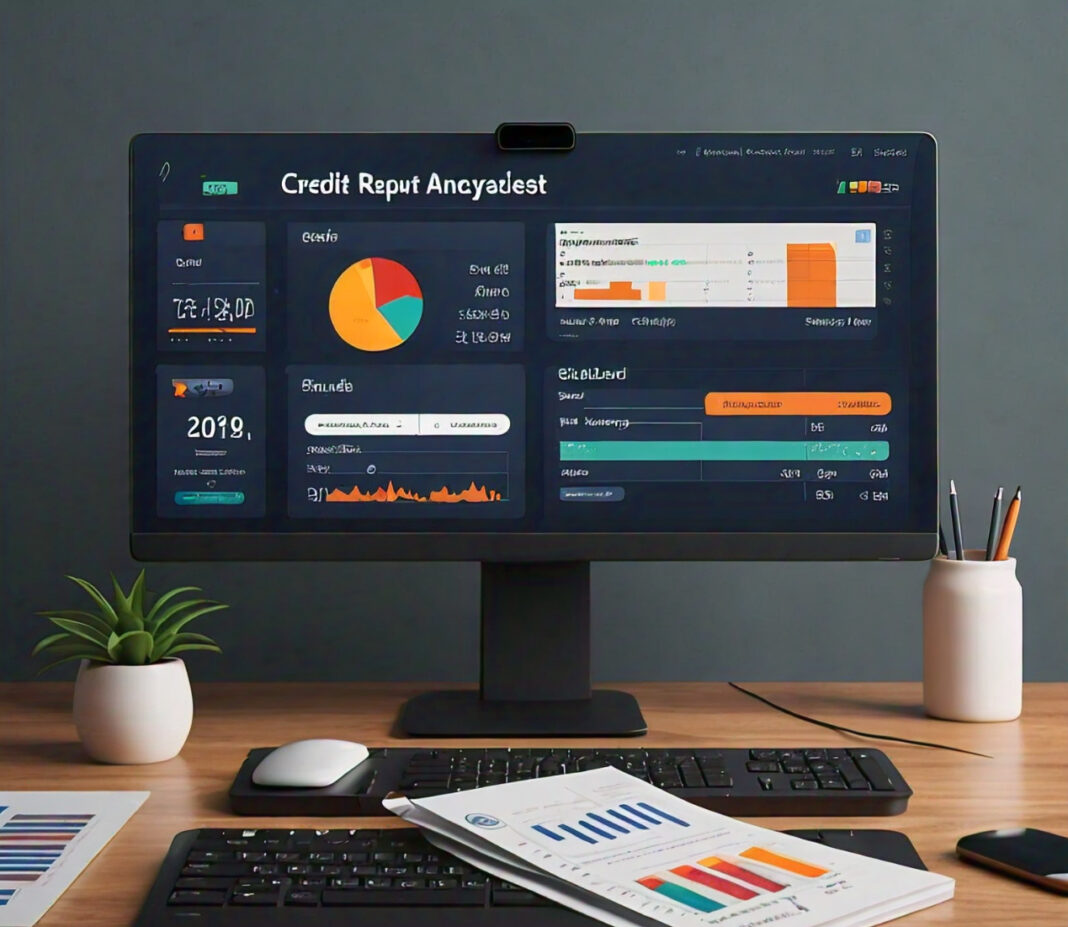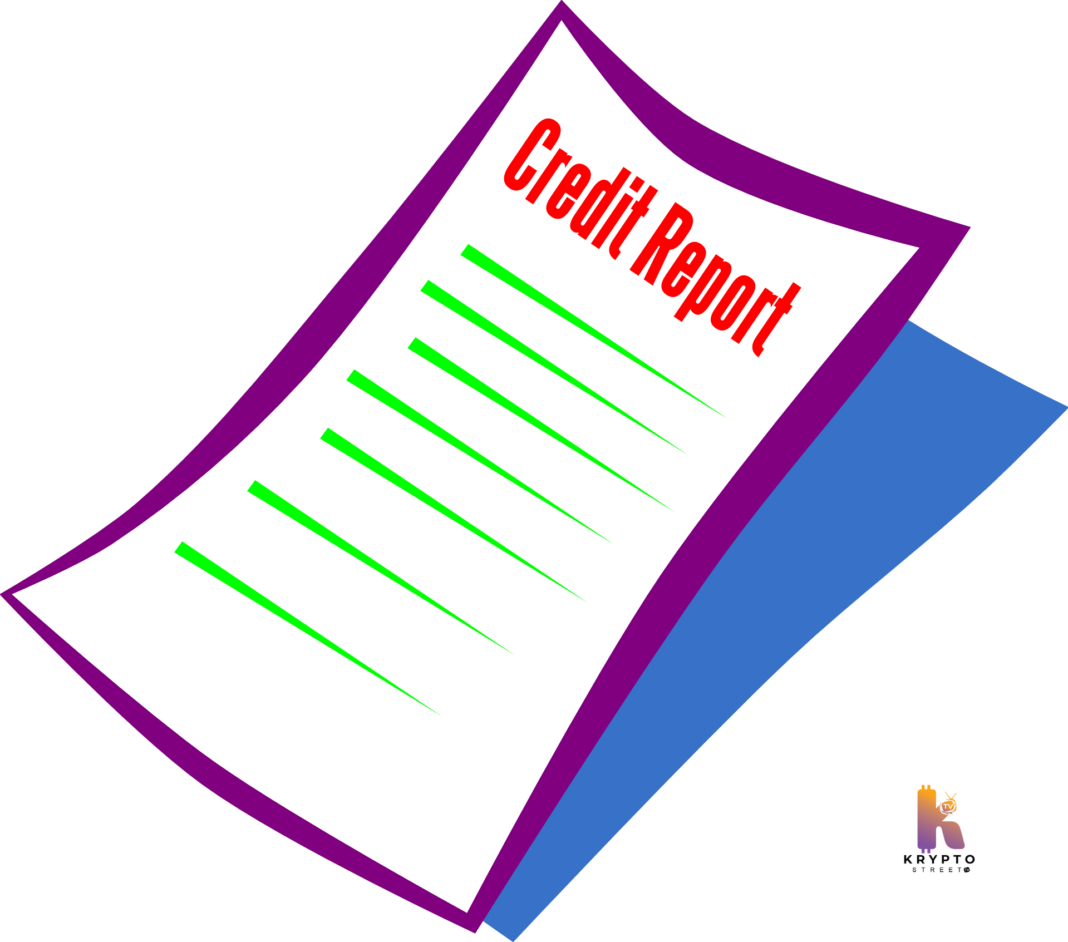What is a Credit Report?
A credit report is an intricate compilation of one’s credit history by credit reporting agencies. In other words, it can be referred to as a ‘financial report card’ that lenders, landlords, and sometimes employers too rely on while judging your creditworthiness and financial responsibility.

A credit report is primarily used to assist a lender in gauging the risk associated with lending money or extending credit to you. It gives a picture of your financial behaviour over time, showing how you’ve managed credit in the past and how you’re handling it today.
What Does a Credit Report Contain?
A typical credit report contains just a few main key sections:
- Personal Information: This includes your name, address, Social Security number, date of birth, and employment information.
- Credit Accounts: This section outlines everything regarding credit cards, loans, and other credit accounts, along with the date they were opened, credit limit or loan amount, account balance, and payment history.
- Public Records: Any financial-related data in the public record may include bankruptcies, foreclosures, or tax liens.
- Credit Inquiries: This is the list of people who have pulled your credit report in the past two years.
- Consumer Statements: You can include brief statements in your report to clarify particular items.
Knowing these sections is key to making correct readings of your credit report.
The Three Major Credit Bureaus
In the United States, three major credit bureaus compile and maintain credit reports:
- Equifax: This is one of the oldest credit reporting agencies in the world, having been founded in 1899.
- Experian: Until it became an independent company in 1996, Experian was originally a subsidiary of TRW Information Systems.
- TransUnion: TransUnion began its operations in 1968 and actually started its existence as a holding company for a tank car firm before turning into a credit reporting agency.
Each bureau may have slightly different information about you on file, so it is important to check your report from all three bureaus from time to time.
Why Credit Reports Matter
As mentioned earlier, credit reports are a significant part of many areas of your financial life. Now, let’s take a close look at some major fields where your credit report could play an influencing role.
Loan Approvals and Interest Rates
When you apply for credit in the form of a mortgage, auto loan, or personal loan, it is common practice for lenders to request and review your credit report. The information therein aids them in deciding whether to approve your request and at what interest rate they will extend credit.
A good credit report can help one easily get loans, qualify for lower interest rates, and even negotiate a much better deal on loan terms.
Conversely, a poor credit report can mean loan denials or high interest rates, which will cost you thousands over the life of a loan.
Credit Card Applications
Credit card companies also use credit reports when determining whether or not to approve someone for a credit card. A good credit report will help you with:
Premium credit cards offering better rewards
Higher credit limits
Obtain credit card balances at lower interest rates
Rental Applications
A very large percentage of landlords and property management companies do pull credit reports of applicants. A good credit report can:
Also, increase your chances of approval on the rental application
Probably diminish the amount of security deposit required
Give you a chance to negotiate the lease in your favour
Job Opportunities
While less common, some employers can also request credit reports, especially for positions that entail responsibilities dealing directly with money. A good credit report can:
- Demonstrate financial responsibility to a potential employer
- Be a deciding factor when job markets are highly competitive
- Be especially vital in jobs related to finance, government, and executive levels
Insurance Premiums
In most states, insurance companies use credit-based insurance scores- a type of score that comes from credit reports—to determine rates for automobile and homeowners insurance. A good credit report can result in lower insurance rates, translating into hundreds of dollars of savings over a period of years.
Utility Services
Utility companies may review your credit report when you apply for new services. A good credit report can help you to:
Save money by not having to pay security deposits when taking new utility services
Setup services more easily when moving into a new home
Understanding Your Credit Report
Now that we know why credit reports are so important, it is time to figure out how to read your credit report and what it all means.
Getting Your Credit Report
By law, you are entitled to one free credit report from each of the three major credit bureaus once every 12 months. You can request these reports at AnnualCreditReport.com, the only authorized website for free credit reports.
Due to the COVID-19 pandemic, the three credit bureaus are offering free weekly online reports through December 2023.
Reading Your Credit Report
When you receive your credit report, review it section by section:
- Personal Information: Ensure everything is accurate.
- Credit Accounts: Review every account to make sure it is represented accurately. Take a look at the balance, payment history, and the status of the account.
- Public Records: If there are any, ensure any listed items are correct and current.
- Credit Inquiries: Know who accessed your credit information.
Finding Mistakes
You will want to review a credit report because errors in this report can lower your credit score. Following are some of the common mistakes one may find:
Accounts not in your name Incorrect payment status Information that is out of date Duplicate accounts If you notice an error, dispute it with the credit bureau immediately. Legally, they are required to investigate and correct errors.
How Credit Reports and Credit Scores Relate
Credit reports and credit scores do go hand in hand, but they are two different things. Let me put into perspective how they might relate to each other.
Credit Report vs. Credit Score
- Credit report: It is an elaborated document that holds the history of credit performance.
- Credit score: This is a three-digit number calculated from information in one’s credit report.
Your credit report can be thought of as a detailed financial biography, and your credit score as a quick summary or grade of that biography.
How Credit Reports Affect Credit Scores
The credit scoring models calculate your credit score based on the information in your credit report. The key factors that are most likely to affect your score include:
- Payment history – 35%
- Credit utilization – 30%
- Length of credit history – 15%
- A mix of credit – 10%
- New inquiries about credit – 10%
The better your credit report, the higher your credit score is likely to be, and the more doors of good financial opportunities are likely to open.
How to Improve Your Credit Report
Whether your credit report simply needs a bit of polishing or it requires some major repair work, there are things you can do to improve it.
Quick Fixes
- Complaints about Errors: If you encounter any inaccuracies in your credit report, you should immediately dispute them with the credit bureaus.
- Pay Off Debt: Paying down credit card balances can sometimes raise your credit utilization ratio rather quickly, therefore offering a positive impact on your credit report.
- Negotiate with Creditors: If you have accounts in collections, try negotiating a “pay for delete” agreement, in which the creditor agrees to remove the negative item from your credit report in exchange for payment.
Long-Term Strategies
- Pay Bills on Time: Making consistent, on-time payments is the best way to improve your credit report over time.
- Keep Old Accounts Open: The longer your history, the better, so don’t close old accounts you are not regularly using.
- Diversify Your Credit Mix: Having one of each type of credit available-credit cards, installment loans-will help your credit report.
- Limit New Credit Applications: For each hard inquiry, credit takes a minor ding.
- Use Credit Responsibly: Consistently using credit cards, and paying them off in full each month, can help build positive credit history.
Protecting Your Credit Report
In an age of increasing identity theft and financial fraud, protecting your credit report is very important. Here are some steps you can take:
Monitor Your Credit Regularly
Avail free credit monitoring services provided by many credit card companies or purchase one of several more comprehensive credit monitoring services.
Consider a Credit Freeze
A credit freeze restricts who can view your credit report, which helps prevent identity thieves from opening new accounts in your name.
Be Careful with Personal Information
Never disclose personal information, such as your Social Security number, unless you have initiated the contact and you know the recipient is trustworthy.
Use Strong Passwords
Use unique, strong passwords for each of your financial accounts, and consider using a password manager.
Be Cautious of Phishing Scams
Be suspicious of unsolicited emails or phone calls that request personal information. Reputable companies do not request sensitive information via email.
As technology evolves and financial landscapes keep shifting, so too does the world of credit reporting. Following is a rundown of some trends to watch:
Alternative Data
There’s a growing movement to include alternative data in credit reports, including everything from rent payments and utility bills to social media activity. This could accelerate how quickly people without extensive traditional histories can build their credit profiles.
Real-Time Reporting
This would involve more real-time credit reporting that, using up-to-the-minute information, allows lenders to make decisions quicker and more accurately.
Open Banking
Perhaps the same idea used in open banking-allowing consumers to decide whether to share their banking data with third parties-would be applied in credit reporting. What a far better view of an individual’s financial habits there would be.
Artificial Intelligence and Machine Learning
AI and machine learning can be used to comb through extensive data and produce more subtle analyses of credit risk, which may equate to more fair and precise credit reports.
Conclusion
Your credit report is much more than just a document; it is actually one of the most powerful ways to shape your financial future. Your credit report will determine whether you get loans and credit cards, rent apartments, or even get jobs.
It’s great to know that your credit report is the key to financial health. The best thing about this is that, through regular checks, disputes of any error, and good credit habits, one can build up a very good credit history, which may unlock more doors to better financial opportunities.
Building a strong credit report takes time and consistent effort. There is no quick fix, but the benefits accrued from a positive credit report surely make it worth the effort. It can translate into lower interest rates, better loan terms, and increased financial flexibility that could save you thousands of dollars over your lifetime.
Much will be different in the future regarding credit reports. Continue to be aware of changes in credit reporting practices and new financial products that may impact your credit. Knowledge and diligence are the keys with which you can confidently navigate the world of credit reports and make this powerful tool work for you in the pursuit of your financial goals.
Your credit report tells a story about your financial life. Make sure it’s one you will be proud to tell. Understanding, monitoring, and proactively managing your credit report will offer important steps toward financial empowerment and success.






